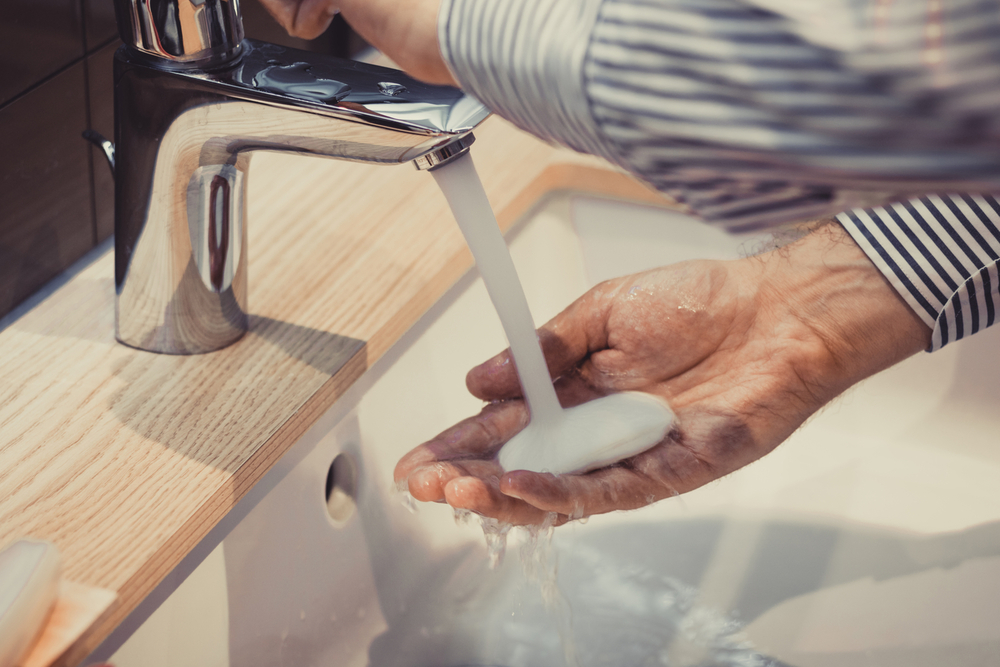
Soaps That Can Trigger Eczema
Eczema is an inflammatory common skin condition that can vary in severity. Symptoms can range from light itchiness to rashes and even to blisters and broken skin. Patients with eczema typically experience periods with no symptoms, followed by periods of flare ups marked by the above mentioned symptoms. Dermatologists will often prescribe dupixent, cibinqo, rinvoq, and over the counter gold bond to help reduce symptoms.
Eczema or atopic dermatitis flareups are typically caused by specific triggers such as weather, stress, personal care products, sweat, and pollen. The following soaps are a particularly common cause for eczema flare ups:
1. Soaps with propylene glycol
We can all appreciate soap that builds up a good foam or lather right from the start. But this is often accomplished with propylene glycol. This emulsifier has found its way into a wide variety of different products. But it’s particularly common in soaps and body washes. But you might even find it in liquid based medications. The most common culprit is liquid antihistamines. But no matter what form the chemical is in, it stands a good chance of triggering an eczema flareup.
2. Antibacterial soaps
Antibacterial soaps are becoming a little less common these days. But people with eczema still need to keep an eye out for them. One of the larger problems with these soaps is that they kill all bacteria. It’s great that it can wipe out harmful bacteria that cause diseases. But skin health also depends on beneficial bacteria which live in harmony with our body. Removing these healthy bacteria can lead to damage that leads up to eczema flare ups.
3. Strong fragrance soaps
Most of us like soaps with a light fragrant smell. But a nice smell usually comes about through a combination of complex chemicals. What’s more, those soaps which make use of botanical extracts might even use alcohol as a preservative. No matter which method a soap uses, the chemicals creating nice smells can trigger eczema flare ups.
4. Soaps containing methylchloroisothiazolinone (MCI) and methylisothiazolinone (MI)
Methylisothiazolinone and methylchloroisothiazolinone don’t exactly roll off the tongue. But people with eczema should make a point of looking for them in ingredient labels. These two chemicals are commonly used in personal care products such as body washes and soaps. They’re also an extremely common trigger for eczema flare ups. It’s easy to accidentally encounter these two chemicals unless someone is continually checking for them. The chemicals are excellent preservatives, which has led to widespread use over the years.
5. Soaps with cocamidopropyl betaine (from coconut oil)
Soaps with cocamidopropyl betaine from coconut oil tend to pose a danger through multiple mechanisms. First, they often have fragrances. The chemical comes from coconut oil, and manufacturers typically try to build on that fact by making it smell like coconuts. This brings along all the problems with fragrant soaps. Next, the Cocamidopropyl used as a foaming agent can itself cause an allergic reaction with sensitive skin. And this is extremely common for people with eczema.
6. Soaps with botanical oils
Soaps that make use of botanical oil have all the issues inherent to fragrant soaps. The fact that the oils come from a natural source doesn’t make any real difference. Plants are just as prone to create irritants as researchers in a laboratory. In fact, when we think of allergy season we tend to conjure up images of plants. We often forget that plants produce a vast array of bioactive chemicals. It’s true that many of them smell nice. But any complex collection of random molecules from the plant world has a good chance of triggering eczema flare ups.


